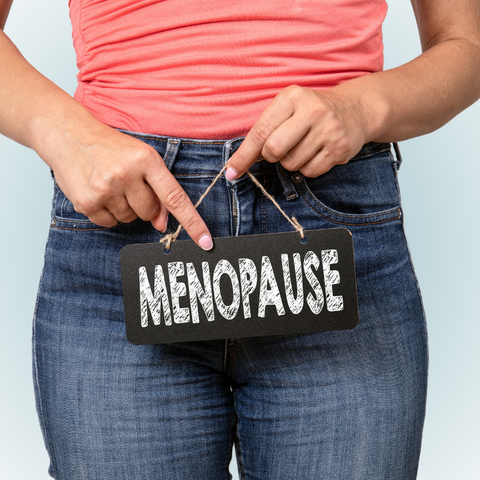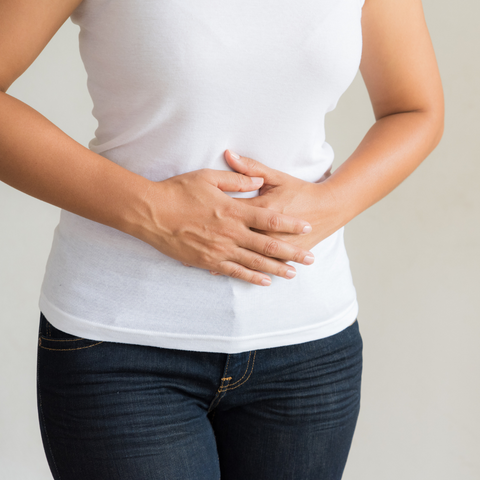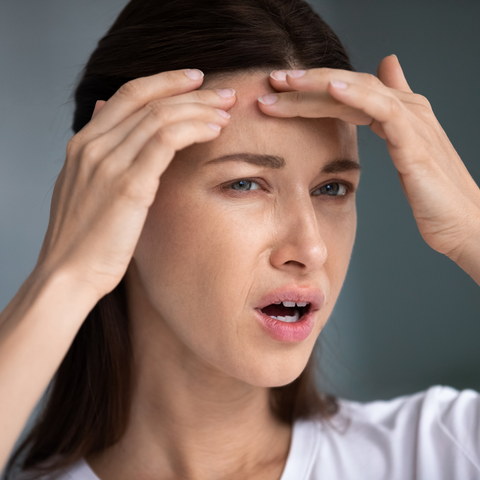As we age (gracefully of course), our bodies can begin to change in some unexpected ways. From our skin losing firmness and our hair losing its vibrant colour, these changes can seem overwhelming, especially when it concerns our menstruation.
But fear not, early menopause is something that many women have experienced, and it is not something to bury your head in the sand about. Understanding what is happening in your body and how to nurture it is the first step in moving through this transition.
In this blog post we will discuss early menopause and outline some remedies and treatments.
What Is Early Menopause?
Early menopause is when a woman’s period stops before the age of 45. This can occur naturally or as a result of certain treatments.
If you are under the age of 45 and you have noticed your period are becoming more infrequent of have stopped altogether, please go speak to your GP as they will be able to give you clear and concise advice that is personal to you and your body.
Causes Of Early Menopause
- Ovaries Go On Strike: Early menopause is something that can happen naturally to woman when a woman’s ovaries stop making normal levels of certain hormones, in particular the hormone oestrogen. The reason why our ovaries decide to go on strike early is often unknown, but there are some possible causes:
- Lifestyle: Some lifestyle factors can impact on when you begin menopause. For example smoking has anti-estrogen effects that can contribute to early menopause as well as your Body mass index (BMI) due to estrogen being stored in fat tissue. Women who are very thin have fewer estrogen stores, which can be depleted sooner.
- Epilepsy: Epilepsy is a seizure disorder that stems from the brain. Women with epilepsy are more likely to experience premature ovarian failure, which leads to menopause. An older study from 2001 found that in a group of women with epilepsy, about 14 percent of those studied had premature menopause, as opposed to 1 percent of the general population.
- Auto-Immune Diseases: Studies have linked a couple of autoimmune diseases to premature menopause. Thyroiditis, an inflammation of the thyroid gland, and Addison’s disease (adrenal glands producing too little hormones) have all been known to have an increased risk of early menopause.
- Genetics: Genetic disorders such as Turner Syndrome and Fragile X syndrome are associated with early menopause. Early menopause is something that can run through families.
Signs of Early Menopause
There are several symptoms for early menopause but they will vary across each individual.
Perhaps the most common sign of premature menopause is irregular periods. They may become longer or shorter depending on the frequency.
There are, of course, many other symptoms of premature or early menopause such as:
- Heavy bleeding
- Hot flashes
- Insomnia
- Sleeping difficulty
- Night sweats
- Mood swings
- Low sex drive
If you notice any of the above symptoms, it is crucial to see a doctor or Obstetrician/Gynaecologist (OB-GYN) and get checked.
Diagnosis
Early menopause can be caused by several factors and a visit to your GP to gain concise guidance is recommended. Your GP will need to carry out several tests to confirm whether the irregularities are caused by something other than early menopause.
Some tests your GP will may out include:
- Two tests to confirm the levels of Follicle Stimulating Hormone (FSH
- Oestradiol test (E2)
- Pregnancy test
- Prolactinis (breastfeeding hormone - when levels are elevated menstruation can stop)
- Transvaginal ultrasound uses ultrasound to check the vaginal area and if the ovary is functioning. Doctors will check for ovarian insufficiency (volume of ovaries), the thickness of the uterine lining, the size of follicles and eggs, and any blockage that may stop the menstrual flow.
Treatment
Ensure you find a medical professional with expertise in the realm of early menopause to help guide you through the changes in your body with an empathetic ear to find a treatment plan that works for you. There are several treatment options available such as:
- Menopausal Hormone Therapy (MHT): MHT It is a treatment that induces the brain to begin to produce oestrogen which a woman loses during menopause. Hormone therapy by increasing oestrogen levels in the body also allows women to maintain better health and well-being by preventing risks associated with vaginal health, osteoporosis, and heart disease. Like any course of medical intervention, MHT has several side effects including an increased risk of thrombosis or breast cancer. If you are unsure of your condition, speak to your doctor to get the appropriate advice.
- Herbal Treatment:
- Black Cohosh: This North American traditional herb can help hot flushes although not as well as HRT. Black cohosh does not help with anxiety or low mood and can interact with other medicines so be sure to speak to a professional before taking herbal remedies.
- Vitamin E: Research shows it could be a natural remedy for menopause. A 2007 study published in the journal Gynaecologic & Obstetric Investigation reported that menopausal women taking 400mcg of vitamin E every day for four weeks experienced fewer hot flushes and that the flushes they did experience were less severe.
- Sage: Sage has been thought to help relieve a range of symptoms including hot flushes and night sweats.
- Evening Primrose Oil: This yellow flower produces a rich oil which has long been associated with female health and aiding with menopause symptoms.
- Stress-Reduction Techniques: Some women find that hormone fluctuations in perimenopause create a feeling of being out of control. Reports of increased irritability, anxiety, fatigue, and blue moods are not uncommon. Relaxation and stress-reduction techniques, including deep-breathing exercises and massage, a healthy lifestyle (good nutrition and daily exercise), and enjoyable, self-nurturing activities may all be helpful.
- Lubrication: Menopause contributes to sexual function changes through the decreases in ovarian hormone production and may lead to vaginal dryness and a decline in sexual function. To counteract these changes, try vaginal lubricants, vaginal moisturizers and regular sexual stimulation to increase blood flow.
Find Out More
Shop Our Full Range HERE
Read More About Menopause HERE




